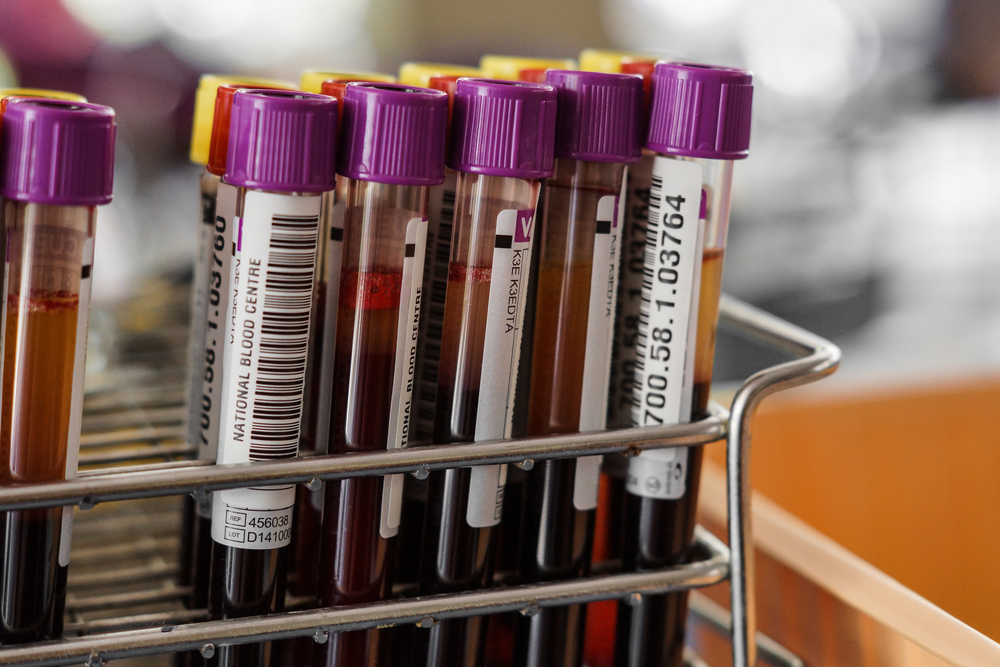What is the CoBi?
The goal of the Collaborative Biobank (CoBi) is to support future research projects in the prevention, diagnosis and treatment of blood cancer. Therefore blood samples are stored and their genetic information (DNA) and further medical data will be saved and combined in the CoBi.

A special feature of the CoBi is that samples and data are collected from healthy stem cell donors and diseased patients. In our biobank collaboration (Collaborative Biobank), collection centres, transplantation centres and donor registries work closely together.
The samples and data are stored for an indefinite period of time and can only be made available for research projects that are consistent with our research goals.
The fundamental goal of the CoBi is to support future research projects in prevention, diagnosis and treatment of blood cancers, and allogeneic transplantation in particular (which means a stem cell transfer from one person to another).
In addition, it is hoped that the selection of donors for blood stem cell transplantation will be optimised to improve the outcome of haematopoietic stem cell transplantations.
We hope to promote the collaboration of all partners in the field of haematopoietic stem cell transplantation.
An extract of already realised research projects can be obtained by clicking on this hyperlink.
If you decide to participate in the Collaborative Biobank, an 18 ml (patients, approx. 2 tablespoons) or 9 ml (donors, approx. 1 tablespoon) blood sample will be taken from you as part of the medical procedure. The data collected from you and stored in the Biobank includes selected information to identify you (first name, surname, date of birth and gender), specific personal information about your health and any further course of treatment (medical data), as well as information about your sample.
Data which directly identifies you is stored by a Trusted Third Party who administers the data and protects it from unauthorised access. This data will not be passed on to researchers or other unauthorised Third Parties.
The data relating to your medical treatment and your sample are stored in a pseudonymised form, i.e. a number and/or letter code is used for encryption. Your data records can only be viewed and processed by authorised users.
In rare cases, researchers may unintentionally identify conditions in the course of their studies which may be relevant to the health of individuals or their children. However, such additional research (incidental) findings are usually not reliable or meaningful enough to be used for treatment.
If an initial assessment of such results shows the possibility of a significant impact on the health of the persons concerned, the results can be reported to the individual affected. In principle, however, an individual also has the right to not be informed of such results (the so-called Right Not to Know).
The search for such incidental results is not active. However, if such additional findings emerge, they must be assigned to a category defined by the German Society for Human Genetics (https://www.gfhev.de/).
“Category 1
Genetic traits that give rise to a relevant risk for a disease for which effective therapy or preventive measures are available.
Category 2
Genetic traits that indicate a relevant risk for a disease that cannot be treated at the time of investigation.
Category 3
Genetic characteristics that only slightly modify the risk of disease occurrence, e.g. data from genome-wide association studies on multifactorial diseases.
Category 4
Genetic traits that do not pose a health risk to the person under investigation, but can lead to diseases in their descendants and/or family members and thus have an influence on family planning.”
Since additional results are not validated, the CoBi Scientific Committee must first advise in the event of a possible suspicion. An initial classification into one of the above categories is made. This result, together with the assigned category, is then communicated to the responsible Ethics Committee. This committee will discuss the result in detail. It is only at this stage that a decision is made as to whether the participant and/or his offspring have a health-relevant incidental finding. In this case, the participant will be contacted via the centre if the latter has explicitly agreed to such a notification in their Informed Consent.




























